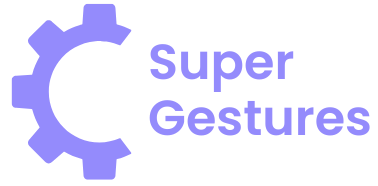Table of Contents
ToggleDiving into the world of coding can feel like trying to decipher an alien language while riding a unicycle. But fear not! Learning to write code is easier than it seems, and it can open doors to endless possibilities. Whether you’re dreaming of developing the next big app or just want to impress your friends with your tech-savvy skills, this guide is here to help.
Understanding the Basics of Coding
Coding serves as the foundation of software development. It involves writing instructions that a computer can understand to perform specific tasks.
What is Coding?
Coding refers to the process of creating software using programming languages. Programming languages like Java, Python, and JavaScript translate human commands into machine-readable instructions. Each language has unique syntax and rules, which guide how code is written. Additionally, coding can represent actions for websites, applications, and embedded systems. People can use coding to solve problems, automate tasks, or build games, making it a versatile skill across various fields.
Why Learn to Code?
Learning to code offers numerous advantages. First, it enhances problem-solving skills, allowing individuals to approach challenges analytically. Second, coding promotes creativity, enabling users to design and develop innovative projects. With technology continuously evolving, coding skills significantly boost career opportunities in multiple industries. From web development to data analysis, the demand for skilled coders remains high. Moreover, many coding resources, such as online courses and tutorials, provide accessible ways to learn this valuable skill, encouraging a fruitful coding journey.
Choosing Your First Programming Language

Selecting a programming language is a critical first step in the coding journey. This choice impacts the learning experience and shapes future projects.
Popular Languages for Beginners
Python stands out as a user-friendly language ideal for newcomers. Its simple syntax encourages beginners to focus on concepts without getting bogged down in complexity. JavaScript plays a crucial role in web development, enabling interactivity on websites. Ruby, known for its elegant syntax, also attracts beginners, especially those focused on web applications. Java has a strong presence in enterprise environments and Android development, making it a versatile choice. Each of these languages offers a supportive community and extensive online resources, facilitating the learning process.
Factors to Consider When Choosing
Personal goals significantly influence language selection. If creating websites is the priority, JavaScript should be the first choice. Consider the community support and resources available for learning, as robust communities can provide assistance. Career aspirations also matter; some languages open doors in specific industries, while others provide broader opportunities. The complexity of each language plays a role as well; opting for a simpler language often eases the initial learning curve.
Setting Up Your Coding Environment
Setting up a coding environment is essential for beginners. The right tools and software help streamline the learning process.
Required Tools and Software
Begin with a text editor. Popular options include Visual Studio Code, Sublime Text, and Atom. These editors provide features like syntax highlighting and code completion. Next, install the necessary programming language interpreters or compilers. For instance, Python requires Python’s interpreter, while Java needs the Java Development Kit (JDK). Version control systems like Git also aid in managing code changes. Download Git and create a GitHub account for easy collaboration and backup. Finally, learning resources such as online courses and documentation will enhance the coding journey.
Writing Your First Program
Start coding by writing a simple “Hello, World!” program. Choose the installed programming language for this task. For example, in Python, the code print("Hello, World!") outputs a message to the console. Execute the code through the text editor or terminal. Running the program confirms that the coding environment is set up successfully. Modify this program by changing text or adding new lines, such as print("Welcome to coding!"). Experimentation fosters understanding and builds confidence in coding.
Learning Resources for Beginners
Accessing quality resources simplifies the journey to learning code. Many options exist, including online courses and books tailored for beginners.
Online Courses and Tutorials
Websites like Codecademy and Coursera provide structured courses covering various programming languages. Learners can benefit from interactive coding exercises and personalized feedback. Platforms such as Udemy and edX offer video tutorials, allowing students to progress at their own pace. Free resources, including Khan Academy and freeCodeCamp, enhance accessibility for anyone interested in coding. Engaging with these online courses fosters a solid foundation and boosts motivation in the coding journey.
Books and Community Forums
Books designed for beginners play an essential role in learning to code. Titles like “Automate the Boring Stuff with Python” and “Eloquent JavaScript” focus on practical coding applications. Community forums, such as Stack Overflow and Reddit’s r/learnprogramming, connect new coders with experienced developers. These platforms provide support through Q&A, troubleshooting, and sharing insights. Engaging with both books and forums creates a well-rounded learning experience that encourages continued growth in programming skills.
Practicing Coding Skills
Practicing coding skills strengthens understanding and builds confidence. Regular practice leads to better problem-solving abilities and increased familiarity with programming languages.
Importance of Practice
Practice serves as the cornerstone of learning to code. Regular coding sessions enhance memory retention and skill application. Engaging with code daily improves logical reasoning. Tackling diverse projects unlocks creativity and exposes learners to different programming concepts. Consistent practice facilitates a deeper comprehension of syntax and programming logic. Set achievable goals and gradually increase complexity to maintain motivation.
Recommended Coding Exercises
Begin with simple exercises to solidify foundational skills. Create basic programs like a calculator or a to-do list app. Work on coding challenges available on platforms such as LeetCode and Codewars to refine problem-solving skills. Participate in project-based learning by building small applications or contributing to open-source projects. Engage with coding games like CodeCombat or Scratch for an interactive approach. These exercises promote a hands-on understanding while keeping the learning process enjoyable and efficient.
Embarking on the coding journey opens up a world of possibilities. With the right mindset and resources anyone can transform their ideas into reality. Choosing a programming language that aligns with personal goals is crucial for a smooth start.
Setting up a coding environment and practicing regularly builds both confidence and skill. Engaging with online courses and community forums offers invaluable support along the way.
As they continue to explore coding they’ll discover not just a new skill but also a pathway to enhanced creativity and career opportunities. The adventure of coding awaits and it’s never too late to begin.




